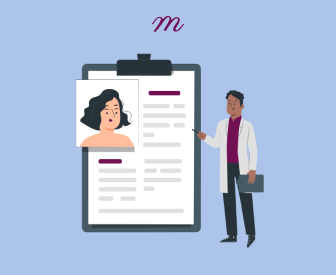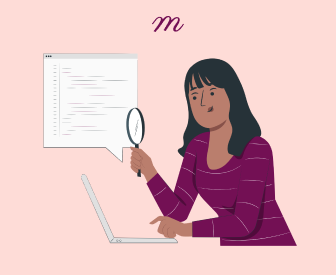Have your progress notes written for you automatically
If you have recently joined the mental health profession or are seeking an update on a familiar system, you are embarking on a fulfilling and rewarding career path. As you progress, you will realize the significance of staying up-to-date with the International Classification of Diseases, Tenth Revision (ICD-10) 2023 coding system. This system is crucial for accurate diagnoses and effective treatment plans.
This diagnostic classification standard is used by therapists, counselors, and psychiatrists worldwide to classify and track mental and behavioral disorders and the treatments provided. It's an essential tool that enables mental health professionals to collaborate and deliver the best care possible for their patients. But did you know that the ICD-10 codes for mental health have a fascinating history and purpose? Despite what they look like, these codes are not just a jumble of numbers and letters – they have significantly influenced the way we diagnose and treat mental and behavioral health disorders. By facilitating collaboration and enabling mental health professionals to deliver top-notch care, the ICD-10 codes have revolutionized the mental health industry.
Get ready to dive into the captivating realm of mental health ICD-10 codes and discover the fascinating stories behind their creation. This journey promises to be an exciting and enlightening one, so brace yourself for an adventure like no other as we explore how this innovative tool has revolutionized the way we approach mental health.
A Brief History of the ICD-10 and Its Importance for Mental Health Professionals
As a mental health professional, it is crucial to master the ICD-10 coding system for effective practice. By familiarizing yourself with the codes and their corresponding definitions, you will be equipped to diagnose and treat various mental and behavioral disorders accurately. This knowledge not only enhances your ability to provide quality care but is also essential for research, statistical reporting, and billing. Moreover, learning these codes enables you to contribute to the collective efforts of mental health professionals worldwide in advancing the field.
A Brief History
The ICD has a long and fascinating history dating back to the 19th century. In 1948, the World Health Organization (WHO) released its sixth edition and has since undergone numerous revisions to keep pace with advances in healthcare. The current version, ICD-10, is considered the global standard for classifying various health conditions, including mental and behavioral disorders. The ICD-10, released in 1990, is the latest version used in the U.S. Since its adoption in 2015, the ICD-10 has been integral for practitioners to provide mental healthcare.
Why ICD-10 Matters
As healthcare technology advances, ICD-10 codes will become even more crucial. These codes are already required for insurance claims, billing, and electronic health records (EHRs), but they will play a more significant role. By standardizing language, ICD-10 enables data analysis and information exchange across systems, paving the way for better care coordination. With 68,000 codes compared to the previous ICD-9's 14,000, the ICD-10 provides more details, allowing healthcare providers to capture conditions precisely.
Therefore, familiarity with the codes relevant to your practice will become increasingly important to ensure insurance reimbursement and provide the best care. ICD-10 codes are undoubtedly an indispensable part of the healthcare industry. They play a pivotal role in facilitating the exchange of vital information and ultimately lead to better patient outcomes. The fact is that these codes provide a universal language that guarantees patients receive precise diagnoses and effective treatment plans. In short, ICD-10 codes are the backbone of healthcare, and their importance cannot be overstated.
Overview of the ICD-10 Code Structure for Mental Health
There are three main classifications for mental health codes in ICD-10, making it easier to organize them. Each category is arranged by disorder, condition, or influencing factor, and the codes follow an alphanumeric structure. They begin with a letter representing the category, followed by two numbers, a decimal point, and up to three more numbers.
F codes refer to mental and behavioral disorders like schizophrenia, depression, anxiety, PTSD, etc. These are the most commonly used codes in mental health.
The three categories most used are:
1. Disorders of psychological development (F80-F89) 2. 3. Behavioral and emotional disorders (F90-F99) 4. 5. Mental and behavioral disorders (F00-F99) 6.
G codes refer to diseases of the nervous system.
Z codes refer to factors influencing health status like abuse, neglect, or other psychosocial circumstances.
The Top ICD-10 Codes for Common Mental Health Diagnoses
The ICD-10 codes most frequently used by mental health professionals are in the F, G, and Z categories.
Disorders of psychological development (F codes)
Mental and behavioral disorders (F codes)
Injury, poisoning, and certain other consequences of external causes (Z codes)'
These include diagnoses for conditions like:
Depressive Disorders (F32-F33)
Depression comes in many forms, from Major Depressive Disorder to Persistent Depressive Disorder (dysthymia). The F32-F33 codes cover diagnoses for depressive episodes and recurrent depressive disorders.
Anxiety Disorders (F40-F42)
This range includes phobias (F40.0), Panic disorder (F41.0), and Generalized Anxiety Disorder (F41.1). Social Anxiety Disorder has its code (F40.1).
Schizophrenia and Other Psychotic Disorders (F20-F29)
Schizophrenia (F20) and Schizoaffective Disorder (F25) are two of the most well-known psychotic disorders. Delusional Disorder (F22) and Brief Psychotic Disorder (F23) are also covered in this category.
Post-Traumatic Stress Disorder (F43.1)
PTSD is a debilitating condition that can develop after experiencing a traumatic event. Its ICD-10 code is F43.1.
Insomnia (F51)
Trouble falling or staying asleep is coded as F51. Difficulty sleeping can significantly impact mental health and quality of life.
Eating Disorders (F50)
Anorexia Nervosa (F50.0), Bulimia Nervosa (F50.2), and Binge Eating Disorder (F50.8) are classified under F50. Eating disorders require specialized treatment and care.
Tips for Using ICD-10 Codes in Your Mental Health Practice
As the healthcare industry evolves, there will be a greater emphasis on mental health and the importance of using accurate and consistent ICD-10 codes in your practice. To prepare for this shift, it's essential to start implementing some tips to help you navigate the coding system effectively. Here are a few suggestions to consider:
Choose the Most Specific Code.
ICD-10 codes are organized in a way that ranges from general to specific. When selecting a code to describe the patient's condition or diagnosis, it's necessary to choose the most accurate and precise. For instance, instead of using the more general F32 code to describe a client's Major Depressive Disorder, single episode, it's better to use the more specific F32.0 code for Major Depressive Disorder, single episode, mild, which accurately reflects the client's condition and diagnosis.
Check the Index and Tabular List.
The index helps locate codes based on diagnosis, symptoms, or conditions. The tabular list provides complete code descriptions and notes for inclusion/exclusion. Cross-reference both sections for accurate coding.
Note the Inclusion and Exclusion Notes.
These notes clarify which conditions are covered under a specific code, such as F41.9 Anxiety Disorder, unspecified, which excludes anxiety in Autism Spectrum Disorder (use F84.0 Autistic disorder instead). Read carefully to avoid coding errors.
Ask about Uncertain Cases.
It's always better to ask for help when unsure about a particular code rather than risk coding incorrectly.
Stay up-to-date with Changes.
Staying up-to-date with the latest changes in medical coding is crucial. It's essential to review newly introduced codes and modifications made to existing ones. The 2023 ICD-10 updates for mental health conditions, for example, include nine new codes, 45 revised codes, and two discontinued codes.
Consider Using Coding Tools.
EHRs, coding reference books, and online tools can make the coding process more efficient and accurate. Look for resources explicitly targeted at mental health professionals.
New and Updated ICD-10 Codes for Mental Health in 2023
Starting in 2023, the WHO released several other new codes, enhancing the classification system's completeness and accuracy. Some of the notable additions and revisions include:
F11.21: Opioid Use Disorder in remission
F52.21: Male Erectile Disorder
F52.22: Female Sexual Arousal Disorder
F52.8: Other sexual dysfunction not due to a substance or known physiological condition
Depressive Episodes
Two additional codes have been included to specifically indicate the existence of a major depressive episode that is either present or ongoing.
F32.9 Major Depressive Disorder, current or ongoing episode, unspecified
F33.9 Major Depressive Disorder, recurrent, current, or ongoing episode, unspecified
Anxiety Disorders
Three additional codes were introduced to improve accuracy in diagnosing and treating specific phobias.
F40. 230 Fear of Blood
F40. 231 Fear of Injections
F40. 232 Fear of Medical Care
Obsessive-Compulsive and Related Disorders
Preexisting codes for Hoarding Disorder (F42) and Excoriation or Skin-Picking Disorder (F43.10) now include "mild," "moderate," and "severe" severity specifiers.
Additionally, a new code was added as a residual category for undefined conditions.
F42.8 Other Obsessive-Compulsive Disorder
Trauma-and Stressor-Related Disorders
Codes under F43 (Reaction to Severe Stress and Adjustment Disorders) were updated to align more closely with the DSM-5-TR
F43.21 Adjustment Disorder with Depressed Mood, a new code, was added to specify the presence of a depressed mood in people with an adjustment disorder.
F43.22 Maladaptive Stress Reaction has a new and more accurate code that distinguishes it from PTSD and acute stress disorder
F43.31 Complex PTSD has been introduced to ICD-10
F43.21 Prolonged Grief Disorder has an ICD-10 code
As a mental health practitioner, it's crucial to have a comprehensive understanding of the ICD-10 codes used in your practice. These codes have undergone significant changes since their inception in the 19th century to stay up-to-date with the evolving healthcare landscape and our understanding of mental health conditions.
While the 2023 updates may require some adjustment, these codes remain a vital tool for providing the best care and ensuring accurate billing and record-keeping. By staying current with the changes and using the codes confidently, you'll become proficient in no time. Don't let the system's intricacies intimidate you; remember that your ultimate goal is to help your clients, and the codes are simply a means to that end. With your unwavering dedication and relentless perseverance, you can inspire positive change that will leave an indelible mark. So, gear up, stay informed, and let your passion drive you toward greater heights of excellence!
Stay up-to-date on the latest ICD-10 mental health codes, gain guidance and support from other mental healthcare practitioners, and access more resources by subscribing to our mailing list. Additionally, take advantage of our free trial for Mentalyc, our AI-powered system that can help you generate progress notes in just a few minutes!
Resources:
Common ICD-10 Codes for Mental & Behavioral Health. ICD-10 Code Lookup. (n.d.). https://icdcodelookup.com/icd-10/common-codes/mental-behavioral-health
Darcy, A. M. (2023, June 1). What is the ICD-10? And How Does it Relate to Mental Health Issues? Harley Therapy Mental Health Blog. https://www.harleytherapy.co.uk/counselling/what-is-the-icd-10.htm
Hirsch, J. A., Nicola, G., McGinty, G., Liu, R. W., Barr, R. M., Chittle, M. D., & Manchikanti, L. (2016, April). ICD-10: History and context. U.S. National Library of Medicine. https://www.ncbi.nlm.nih.gov/pmc/articles/PMC7960170/
International Advisory Group for the Revision of ICD-10 Mental and Behavioural Disorders (2011). A Conceptual Framework for the Revision of the ICD-10 Classification of Mental and Behavioural Disorders. World Psychiatry: Official Journal of the World Psychiatric Association (WPA), 10(2), 86–92. https://doi.org/10.1002/j.2051-5545.2011.tb00022.x










